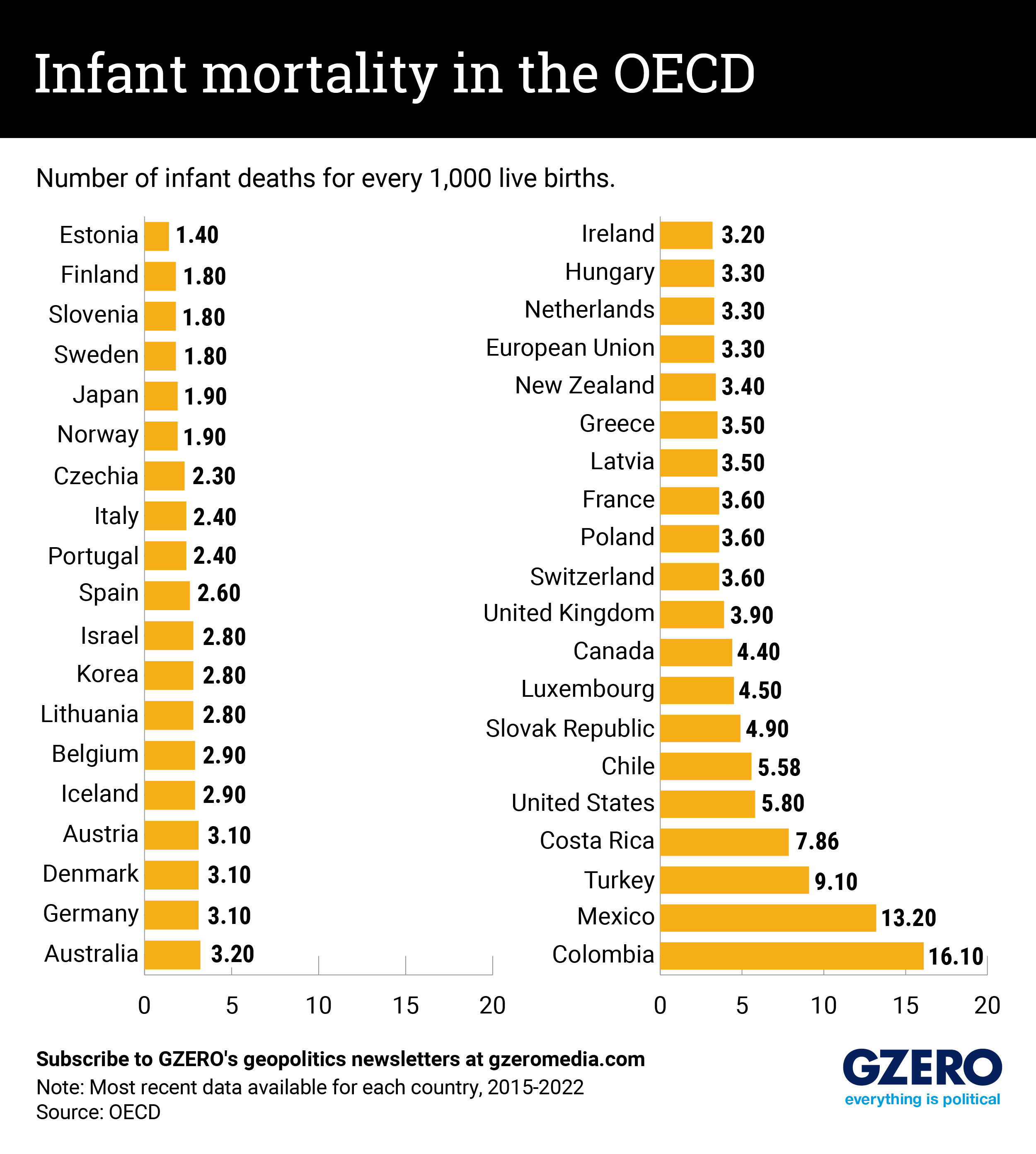April 30, 2024
American parents are more than four times as likely as their peers in Estonia to lose a baby during or shortly after birth. It is one of the most devastating human experiences – and a key indicator of a country’s development. After all, if even the most vulnerable babies survive, the healthcare system must be doing something right. By that metric, the US looks more like Chile or Slovakia than the global superpower it is.
And it’s not just babies who are more at risk in the US. A study from the Commonwealth Foundation found that American mothers are twice as likely to die during or shortly after childbirth than their Canadian peers, and more than 10 times as likely as women in New Zealand.
Part of the problem comes down to a shortage of care for expectant mothers. The US has about 15 gynecologists per 1,000 live births, compared to 54 in the UK and 78 in Sweden. That means less attentive care during and after pregnancy, which can lead to early warnings going overlooked.
More For You
- YouTube
Europe can no longer rely on the US and must step up to defend its own future, Ian Bremmer reports from the Munich Security Conference.
Most Popular
Think you know what's going on around the world? Here's your chance to prove it.
A poster featuring Andrew Mountbatten-Windsor, formerly known as Prince Andrew, is installed on a sign leading to the parking area of the Sandringham Estate in Wolferton, as pressure builds on him to give evidence after the U.S. Justice Department released more records tied to the late financier and convicted sex offender Jeffrey Epstein, in Norfolk, Britain, February 5, 2026.
REUTERS/Isabel Infantes
British police arrested former Prince Andrew Mountbatten-Windsor today over allegations that in 2010, when he was a UK trade envoy, he shared confidential government documents with convicted sex offender Jeffrey Epstein.
© 2025 GZERO Media. All Rights Reserved | A Eurasia Group media company.
